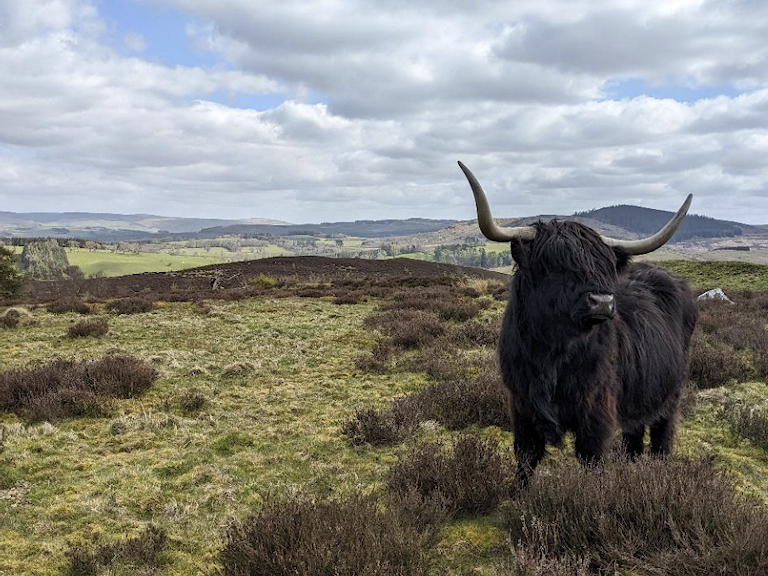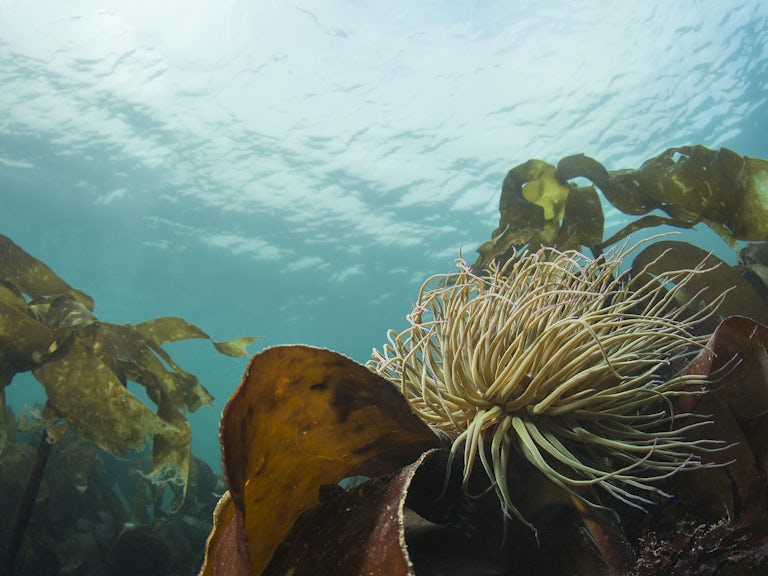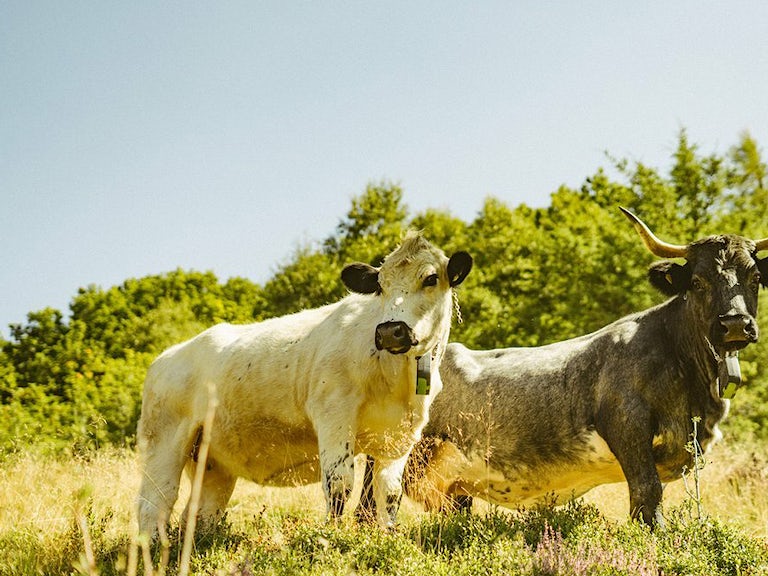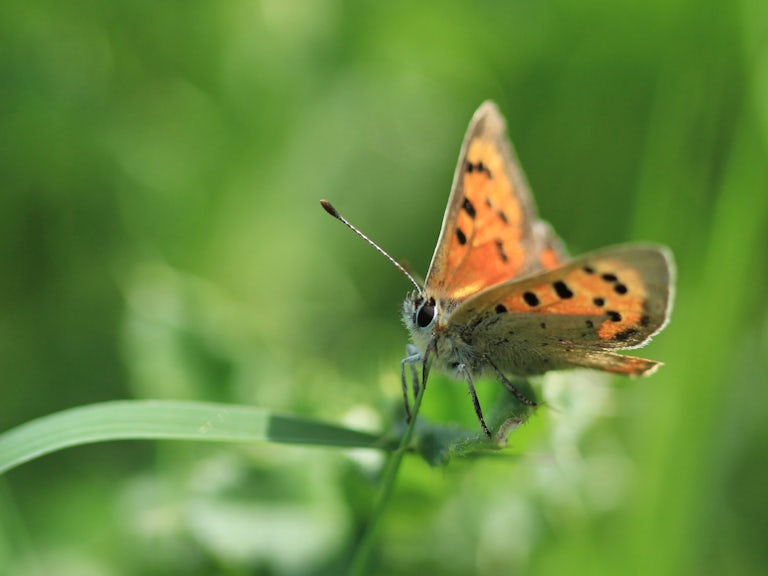Cliff to Carn - a project for a Wilder Penwith
Local network
An exciting, unique, grassroots nature recovery project, linking up landowners and the community in the south-western tip of the UK
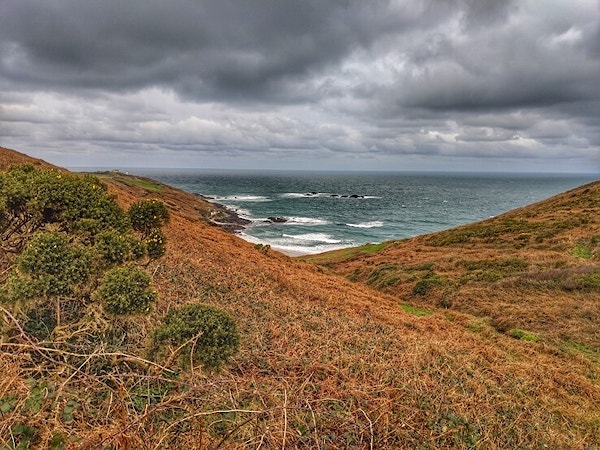
Cliff to Carn is an exciting, unique, grassroots nature recovery project, linking up landowners and the community in the most south-western tip of the UK, the Land’s End peninsula. Our aim is explore how a wilder approach will benefit farming, wildlife, and local community, to find a way to thrive together.
This pilot project is focused on developing a nature-rich wildlife corridor linking the higher moorland with the Atlantic cliffs and sea, following Rose Stream through farmland, wetland and scrub woodland, and alongside Rose Valley cottages. All nine landowners within this catchment (seven farming businesses, a smallholding and Cornwall Wildlife Trust), and residents of Rose Valley are supportive of the project. Other active members of the project team include conservationists, ecologists, landowners, a journalist, and Penwith Landscape Partnership (PLP).
Our co-ordinated conservation measures will kick-start natural processes within the wildlife corridor to help support a thriving nature-based local economy for generations to come. We envisage this innovative and inclusive “bottom-up” approach will serve as a model for other farm clusters and communities both locally and nationally. Our long-term vision for these clusters within West Penwith is for them to connect across the landscape to create a rich tapestry where farming, wildlife and community enrich each other.
Our Vision
Our vision is simple; extend and sympathetically manage existing habitats, encourage natural regeneration and habitat creation on areas that are species-poor and marginal. These niches were once more prolific and widespread; natural river banks, seasonal scrapes and wet meadows, rough pasture, scrubby margins and woody corners, Cornish hedges and hedgerows — so much was cleared and “improved”, drained and straightened, or scrubbed out in the post-war drive to maximize yield from farms. We are looking to bring nature back.
Nature and Farm Based Enterprise
Chypraze Farm has an on-farm butchery, a farmers market and a wedding and events barn, alongside their outdoor rare breed pig and beef business. Lower Keigwin has on-farm work spaces for local small enterprises. Chyrose currently rent land to a neighbouring large dairy farmer. Keigwin Farm House runs Yew Tree Gallery, a shepherds hut and glamping tent on a small holding. Higher Keigwin Farm direct sells their organic beef locally in boxes, provides wild camping, and hosts wildlife related courses and school groups. Carne Farm direct sells their lamb and runs a campsite. Both Tregaminion Farm and Carne Farm manage intensive dairy herds as their main business.
The Roles of Our Farms in Nature Recovery
Ancient farming communities formed the moorlands and Neolithic field patterns unique to West Penwith. These have largely survived intact, with farmers repairing and maintaining wildlife-rich Cornish hedges and beginning to graze the heaths again. Working together, these farms, small holding and the local community are regenerating this incredible landscape.
Four of the farms have been in Higher Level Stewardship Agreements for the last 10 years. This has given our project a really good start, encouraging grazing of the moors and cliffs, creating and maintaining habitat mosaics, managing and expanding wetland, establishing wild flower meadows, bird seed and nectar crops, and retaining winter stubble. Native Dexter cattle are now grazing wet woodland and moorland to regenerate flora and fauna. We are trialling the ‘Nofence’ system with PLP’s support, to alleviate the need for visually intrusive hard fencing. These grazing techniques are also being trialled on the cliffs of Chypraze and Tregaminion Farms with Highland and Hereford cattle. This cliff management has been instrumental in the return of the Red-billed Chough along this part of the coast.
Alongside this Chypraze Farm are exploring the potential of edible forests. Lower Keigwin Farm have lightly cultivated 1.5 acres to create rough terrain suitable for ground nesting birds, and then used cattle to tread in wildflower seeds. Keigwin Farm House has a total of two acres of wild hay meadow, a wildlife pond, and horticultural enterprise surrounded by native hedging and trees. Higher Keigwin Farm has been developing varying woodland habitat, coppicing native and hybrid willow, planting native hedgerows and copses of sessile oaks, alders, downy birch, silver birch, hazel coppice and sweet chestnut. These are in corners of fields and areas which are species poor, not easy to farm, or planted alongside existing woodland. More recently a wet meadow has been flooded, several scrapes created, and wild flower meadows seeded with the support of PLP. Carne Farm have planted herbal lays alongside clover and rye mixes and paddock graze on rotation to maximise milk from grazed grass. This allows them to reduce their use of artificial fertilisers and hard feed. CWT with PLP volunteers have opened up footpaths and cleared around Chun Castle on Chun Nature Reserve.
If you own land close to our partnership or would like to get involved, please get in touch to join our local group!
Future Plans
- Aim to introduce beavers to approximately 10 acres of wetland shared by Tregaminion, Lower Keigwin and Higher Keigwin Farm. Lower Keigwin is regenerating 1.6 acres of wet grassland with scrapes to extend the area available for beavers, and will use their deep pool, once used to irrigate potatoes, to be the site for the introduction.
- Lower Keigwin would like to concentrate on regenerative farming methods with the introduction of agroforestry, whilst planting small corners of fields with native trees and reinstating a number of scrapes and water-holes in fields.
- Chyrose Farm are going to broaden the wildlife corridor along the stream and connect the sea cliffs to woodland and wetland that lie southeast of the catchment. The farm would also like to increase the area of native woodland and trees throughout.
- Chypraze Farm would like to create a scrape, and will continue their light grazing management of species rich wet pasture that runs alongside the stream, and add to the habitat improvement on the cliffs.
- Carne Farm would like to create a pool at the top of the catchment to hold farm run-off which would be planted with reeds and willow to improve water quality before it enters the stream. This will help diverse natural vegetation further downstream and create another wetland habitat for invertebrates, amphibians, and birds.
- We are currently working with local landowners and wildlife experts with the aim to develop plans for baseline biodiversity monitoring and an annual monitoring programme that will enable us to measure the long-term impacts of our project on local biodiversity. In 2021 (pre-beaver introduction), PLP will organise two targeted expert surveys to be undertaken of epiphytic ‘lower plants’, one focusing on lichens and one on bryophytes. This monitoring will provide a baseline to enable comparison of the current epiphytic ‘lower plant’ diversity with the introduction of beavers, and will provide useful guidance for other beaver introductions elsewhere in the country. Furthermore, should any significant species be identified which are apparently restricted to a very small number of individual trees, then the survey results will allow these individual trees to be protected against beaver damage.
- Cornwall Wildlife Trust aspires to bring its Chun Nature Reserve into sympathetic management so it can support a greater range and abundance of species. The complexities of this unenclosed heathland site with multiple owners, a significant scheduled ancient monument and the local community’s concerns about new fencing in the landscape has prevented this in the past. Now with local trials of ‘NoFence’ having positive results and with this new Cliff to Carn collaboration, there is every chance the Trust could make progress.
View the panorama of the area.
-
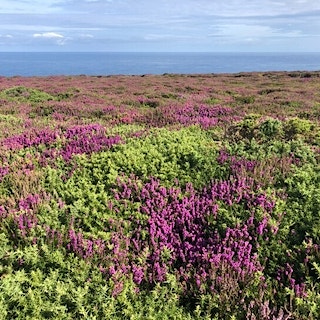
© Cliff to Carn Project -
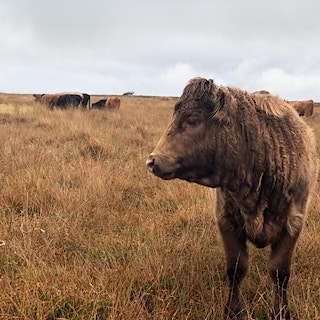
© Cliff to Carn Project -
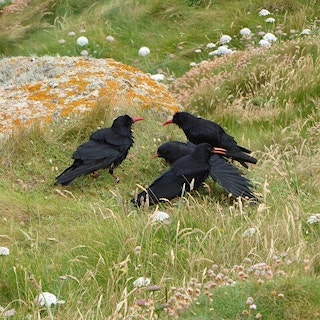
© Cliff to Carn Project -
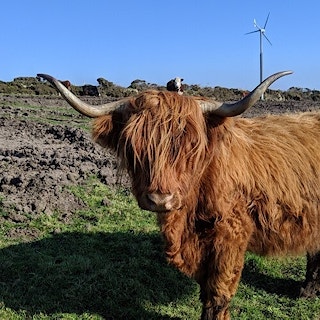
© Cliff to Carn Project -
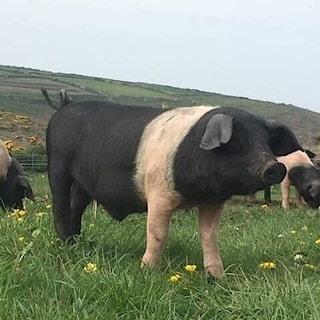
© Cliff to Carn Project -
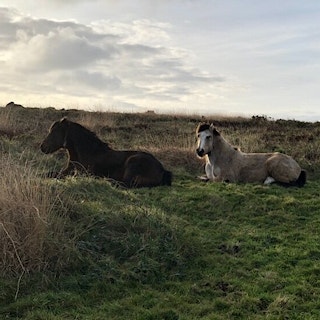
© Cliff to Carn Project

The Rewilding Network
The Rewilding Network is the go-to place for projects across Britain to connect, share and make rewilding happen on land and sea.
